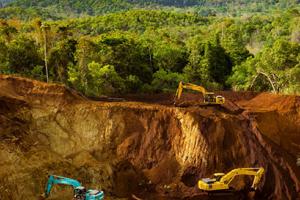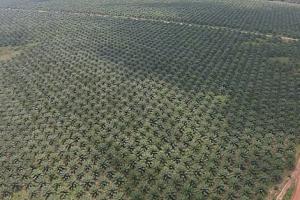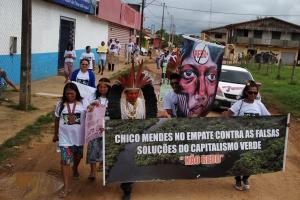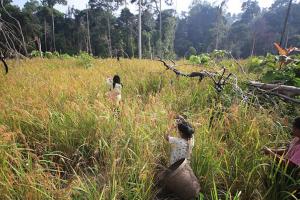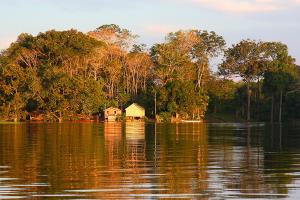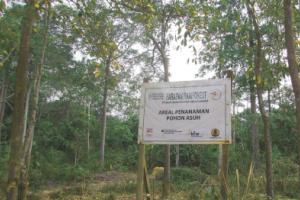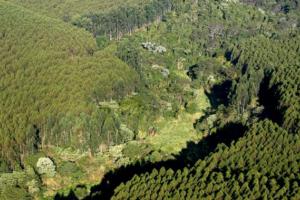Carbon offsetting and REDD
Reducing Emissions from Deforestation and Degradation (REDD+) has become the dominant international forest policy. Variations of REDD+ include Nature-Based Solutions and corporate pledges to achieve Zero Net Deforestation. In reality, though, deforestation continues, polluting companies use REDD+ offsets to avoid reducing their fossil fuel emissions, and zero-net deforestation pledges allow forests to be cleared in one area as long as an “equivalent” area is restored elsewhere.
These companies have destroyed large territories and the devastation that comes with their fossil fuel extraction continues. Now, they are putting forest protection and tree planting at the heart of their climate strategies
The mining sector seeks to gain legitimacy and expand its frontiers of accumulation and territorial control. It does so using a discourse of sustainability and by investing in so-called “nature-based solutions.
This text shares reflections that emerged from our discussions with women impacted by Green Economy projects in Brazil.
For the world’s richest men, the environmental crisis has finally arrived. From fleeing into outer space or fantasylands to science-fiction solutions, capitalists desperately seek fossil-fuelled business as usual to continue.
Polluting corporations tell stories about reaching “Net-Zero” emissions while planning to continue, or even increase, destruction and exploitation. Offsets are at the centre of these stories. Of late, offsetting is also being championed by the financial industry.
How does REDD+ fit into the development agenda in Indonesia? What are the actors involved in promoting REDD+ and with which interests? (Available in Indonesian).
Despite the various tactics that try to hide the underlying harm and violence behind large scale tree plantations, each year, communities and movements raise up on September 21st to give visibility to their struggles and to denounce the detrimental impacts tree plantations have on their lives and territories.
The tens of millions of euros that the government of Acre received from the German government for its REDD+ program failed to stop deforestation. Despite this fact several Brazilian states continue to receive funds from the German government.
The approval of a road construction inside the first Ecosystem Restoration Concession in Indonesia puts in evidence the inherent contradictions of such concessions. (Available in Indonesian)
The environmental, climatic and social crisis has been a reality for many for a long time. Yet, rather than acknowledging their contribution to this crisis, corporations and allies use the pandemic to amplify their push to expand Protected Areas, presenting it as a "global solution".
Back in 2004, conservation NGOs and the Indonesian Ministry of Forestry pioneered with a model called Ecosystem Restoration Concessions. This article takes a closer look at this model in the context of new and old threats to forests, and the global push for “forest restoration”. (Available in Indonesian).
A key tactic for the giant pulp producer, Suzano S.A, to keep expanding its industrial eucalyptus plantations in Brazil, is to market itself as a company that practices “conservation” and “restoration.” This conceals its disastrous track record related to forest and forest-dwelling populations.





